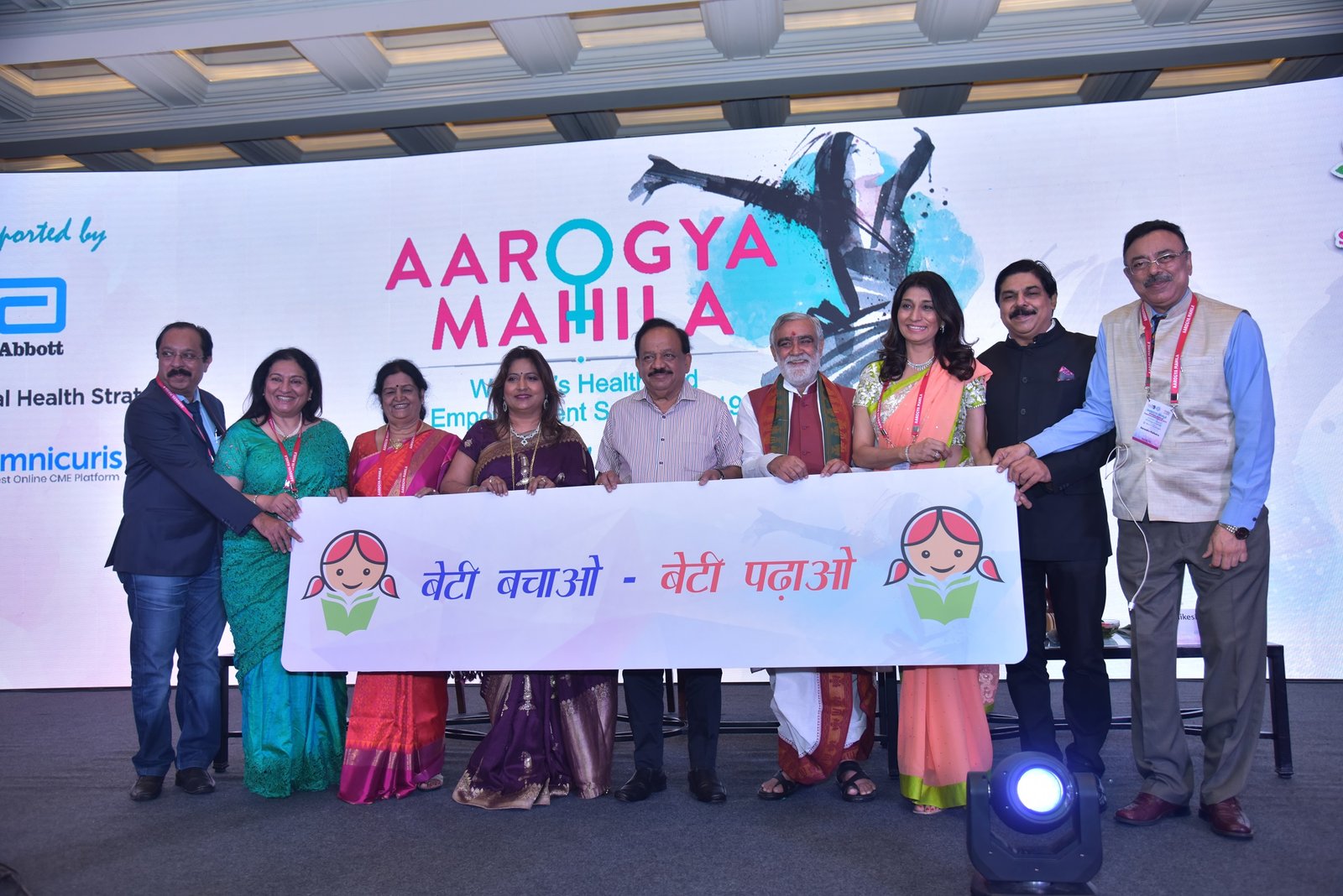FOGSI hosts Aarogya Mahila summit
September 03, 2019 | Tuesday | News
The representatives from the ministry urged FOGSI to engage and collaborate on national initiatives
The Federation of Obstetricians and Gynaecological Societies of India (FOGSI), supported by Abbott India and Global Health Strategies, organized two day Aarogya Mahila Summit in New Delhi, featuring discussions on public-private partnerships in women’s healthcare in India with prominent stakeholders in the government and private healthcare community.
The Summit was inaugurated Dr Harsh Vardhan, Minister of Health and Family Welfare; Ashwini Choubey, Minister of State (MoS), Health and Family Welfare; Dr Nandita Palshetkar, FOGSI President and Dr Meena Agnihotri and Dr Hrishikesh Pai, Joint Summit Convenors.
Dr. Harsh Vardhan spoke at length about past and ongoing government collaborations with FOGSI in addressing women’s health issues.
He said, “FOGSI’s passion for serving people, and their consistency in addressing women’s health pro-bono is unparalleled. Through a meeting of minds and a meeting of actions between FOGSI and the Health Ministry, we can address many issues together, such as ending maternal and under-5 mortality, anaemia and family planning. We are planning to launch new initiatives and we look forward to your support in order to ensure health for all.”
The summit brought together the private sector, associations, Ministry of Health and Family Welfare, Niti Aayog, NGOs such as Jhpiego and international organizations such as USAID, WHO, UNICEF, MSD for Mothers together to discuss a diverse set of issues, including family planning, reproductive rights, maternal and child health, and non-communicable diseases, set against diverse backdrops of legislation, quality care, and research.
Highlighting the need for private sector participation in women’s health, Ambati Venu, Managing Director, Abbott India Ltd. said, “Women play a vital role in maintaining the health of their families, yet often neglect their own well-being. With unique needs spanning gynaecological conditions, hormonal disorders, reproductive health, pregnancy, menopause, cardiovascular conditions and diabetes, women’s health requires a focused and specialized approach. By addressing these needs holistically across the spectrum of awareness, detection, treatment and management, healthcare companies play a critical role in helping to find solutions to some of these problems. Abbott is committed to helping women live healthier and better lives, and to make their health a priority. For many years, our portfolio has been offering innovative and effective medicines with the aim of enhancing the quality of life of women affected.”
The representatives from the ministry urged FOGSI to engage and collaborate on national initiatives such as adopting aspirational districts, promoting family planning in high fertility districts, supporting IEC on maternal and newborn health. International organizations expressed desire to collaborate on evidence generation, advocacy and capacity strengthening of healthcare providers.
Dr Nandita Palshetkar elaborated on FOGSI’s vision and the organization’s commitments to the nation in her capacity as FOGSI President.
Talking about reproductive rights for women, one of the main things on FOGSI’s agenda, she said, “Years of gender inequality has meant that a woman is still not in control of her own body and her health. This is where the role of advocacy and education are crucial in empowering women with choice, freedom and autonomy to make decisions about their own body. Organisations like FOGSI can contribute immensely in offering non-coercive, non-judgmental services to advance women’s reproductive rights. Above all, we need to highlight the unmet need of 1 in 5 women who do not have access to contraception and safe abortion — which contribute significantly to maternal and neonatal deaths every year. In order to address this issue, it is essential that we reach that last mile by providing and safeguarding reproductive rights for women.”
Commenting on the importance of the summit, convenor Dr. Hrishikesh Pai said, “Women’s health is undergoing a transition where the burden of non-communicable diseases is rising, there are still unmet needs for contraception, there are inequities in accessing quality care. Over the years, public-private-partnership in healthcare has gained greater national discourse. FOGSI is working to support the government’s public health goals, to have a population-level impact. Collaborative solutions between the government and the private sector can help in achieving affordable quality care for all women. Platforms such as the Aarogya Mahila help in sharing knowledge, ideas and best practices between the public and private sector so that both can build effective partnerships in addressing women’s health challenges together."
Issues around demystifying reproductive rights, the much debated area in women’s health were also discussed.
Anjali Nayyar, Executive Vice President, Global Health Strategies said: “Education, gender empowerment, socio-economic development are closely interlinked with reproductive health and rights. When women and girls are given quality education, reproductive information, contraceptive choices and accessible services, they make responsible decisions – which in turn, results in healthier and more prosperous communities.”
FOGSI is single largest institution of obstetricians and gynaecologists in India and globally, and is part of the International Federation of Gynaecology and Obstetrics (FIGO).









